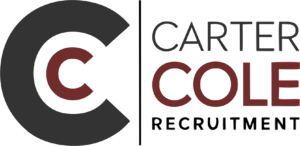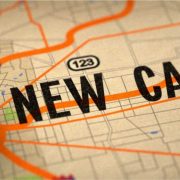How To Write The Perfect Covering Letter
Writing a covering email to accompany your CV
If your CV is attached to the email, then use the main body of the email as your covering letter. Tell the employer how you meet their key requirements so that you can immediately make a good impression and entice them to open the attachment and look at your CV in more detail.
- In the subject line of the email, list the vacancy title, reference number and where you saw or heard about the vacancy
- Use the body of the email to convince the recruiter in three to five bullet points that you are the right person for the job
- Send the CV as an attachment clearly labelled with your name
- Spell-check before sending the email
Email covering letter template
To: Ann Brown
Subject: Project Manager, ETD, Ref No. 1234 Management Today
Attachment: MWoodProjectManagerCVfeb13.doc
Dear Ann,
I am interested in applying for the above job as I believe my substantial experience in project management combined with my knowledge of the telecommunications sector will be of particular benefit to your organisation.
ABC has an excellent reputation for innovation and having worked on a number of ground-breaking technological projects from the planning to the implementation stage, I believe that I can make a significant contribution to your organisation.
In particular, I have:
- 10 years’ experience in managing teams of between 5 and 15 people on a variety of complex telecommunications projects
- An engineering background which gives me the ability to quickly grasp new technical detail and assess implications for operational planning
- Experience and qualifications in PRINCE2 project management software
- Superb relationship-building skills enabling project team members to focus on tasks even during challenging times
My CV is attached, providing further information on how my career background meets your requirements. I would welcome the opportunity to meet with you in person to discuss this further.
I look forward to hearing from you.
Mike Wood
Tel: 07777 555 555
CV & Email Checklist
Remember, first impressions are very important. The following is a quick checklist before sending off those emails.
Your CV attachment if sending in Microsoft Word:
• Arial or Times New Roman size 10–12 for body of text and size 14 for headings
• Standard margin lengths
• Bold used sparingly, principally for headings
• No columns or boxes
• No graphics, photos or Jpegs
• No shading
CV attachment if sending as PDF:
• Checked that recipient/website can upload or view these
CV attachment sending from or to a Mac:
• Double-check format to ensure CV is compatible with recipient’s software
- Has all the spelling and grammar in the email covering letter been double-checked?
- Have you specified in the Subject Line of your email the vacancy/reference number of the job for which you are applying?
- Does the email covering letter state why you are a good candidate?
- Is the covering letter written formally, using full sentences with bullet points to reinforce key selling points?
- Have you addressed the individual by name, if known, in the covering letter?
- Have you labelled your CV attachment with your name?
- Have you created an email address just for job-searching?
- Have you included your telephone number in the main body of your email to make it easy for people to contact you?
Sourced from: https://jobs.theguardian.com/article/how-to-write-the-perfect-email-covering-letter/
How To Handle Interview Nerves
For many of us, that initial excitement of getting a job interview is short-lived. The nerves kick in, you start to panic. Here are some tips for reducing the potential of nerves getting the better of you – and how to handle them if they do.
Before the interview…
Do your research and practice
Nerves stem from fear, and in an interview fear is related to being asked something you weren’t prepared for, says Capita Resourcing director Jonathan Bennet: “Research the company and practise talking through your experience over and over again; with your partner, dog or reflection. If you understand the company and can comfortably talk through your career, skills and experience, you’ll feel a lot more relaxed.”
While you may still encounter some curveball questions, anticipating the sorts of questions you may face will be a big help – and working with an experienced recruiter to do this could be useful, adds Bennet. Feeling prepared should help stave off the majority of nerves, and make the whole experience a lot less stressful.
Ask yourself tough questions
A key part of your confidence-enhancing preparation should be to focus in
advance on the worst things you could be asked during the interview, says Michael Dodd, author of Great Answers to Tough Questions at Work. He explains: “To get yourself properly equipped and in the best frame of mind to deal with such questions, prepare by asking yourself what is the best thing you can say on that. This ensures you have your own self-empowering positive agenda that can help you capitalise on the situation and feel good about tough questions they may well throw at you.”
Confidence coach Jo Emerson adds that it’s useful to imagine you at your very best before the interview: “Imagine how you feel when you’re at your best … what do you say? How do you stand? What do you believe about yourself? What tone of voice do you use? Now, practice being this person in the mirror and take him/her into the interview with you.”
Exercise, sleep, hydrate
Ben Barker, a therapist from Total Health Clinics, advises taking regular exercise in the lead up to the interview to burn that excess nervous energy. “While turning up to an interview hot and sweaty is not ideal – taking regular exercise in the lead up before nerve inducing situations can be really helpful. It promotes oxygenation of the blood, boosts endorphins and promotes a good night’s sleep,” he explains.
It might sound obvious, but sleep is important too. “Staying up late and ‘preparing’ for the following day is not a good use of your time. Get a good, restful sleep and you’ll be far more alert the following day,” says Barker. And finally, drink plenty of water to promote tip-top performance.
On the day…
Don’t be rushed
Plan your travel well ahead of time. Tearing through the train station and trying to navigate your way through an unfamiliar place with minutes to spare is sure to make you anxious and heighten those nerves; it could also impact your performance. Naomi Watkins, emotional wellbeing consultant at NW Consultancy, recommends finding where the company is beforehand and time how long it takes to get there and where to park. Building in some time for a 10-minute walk around the block before the interview can help calm the nerves too, as well as mindfulness exercises.
Bennet adds: “If you are already working, book a day or half-day holiday from your current role just in case, rather than hoping you’ll be able to slip away for an hour or two.” Building in some time for a 10-minute walk around the block before the interview can help calm the nerves too.
During the interview…
Have an icebreaker handy
Remember that the interviewer is a person too and could also feel nervous about running the interview. Bennet recommends preparing your own icebreaker to put both of you at ease. “Research the interviewer’s background using tools like LinkedIn and try to find something you have in common or something you can ask them about,” he says. “Something as simple as ‘I see we both studied English at university – how did we end up in accounts?’ or ‘I saw on your company website that you managed the charity cycle ride, how did it go?’ can set a nice tone for the meeting.”
Breathe
If nerves get the better of you beforehand, try and slow your breathing down, says Barker. Take slow, deep breathes in through your nose and use your diaphragm. Breathing in through your chest can aid the tension you feel, particularly in the neck and shoulders, he explains.
However, any breathing exercises will go to waste if you rush your answers once you’re in the room, adds Benett. “Most people don’t realise that good pauses when speaking aren’t even noticed by the person or people you are talking to,” he explains. He recommends watching some famous speeches by great speakers and looking out for their pauses. “You’ll see that they are completely natural and help the speaker remain in control of their breathing and their general flow. Giving yourself time to think will help avoid a rushed answer and a shaky voice.”
Project confidence
Job applicants should sit in a way which makes them look and feel good and which projects confidence, says Dodd. The key expression to remember is BBC – Bottom at the Back of the Chair. “This, together with having your feet flat on the floor and keeping your arms apart and hands open – showing that you have nothing to hide – helps you look and feel open and confident,” he says. “When you get your body in the right position, and lean ever-so-slightly forward to convey enthusiasm, you project confidence to the selection panel and it also sends a message to your brain that you are feeling confident too.”
Emerson adds: “My number one top tip is to ‘hold the outcome lightly’, by which I mean do your very best and be your very best self in the interview but understand that you can’t affect the outcome. There are other factors involved in an interview process so try to just focus on your bit.”
Originally published at https://jobs.theguardian.com/article/how-to-handle-interview-nerves-/
The Biggest Mistakes That Jobseekers Make
1. If you have spent the last eight hours posting for jobs online, you have wasted seven hours and 50 minutes.
It can be tempting to apply to jobs online. So many positions are listed, and so many appear to be a fit. But while you are hitting the send button, so are 500+ other people. Job postings represent the open market; the jobs everyone gets to see. Most people source their jobs through the hidden job market, the ones where opportunities are shared through close contacts and conversations. Shift your strategy and spend most of your time networking for job leads, and limit your time applying to jobs online.
2. Just because you did it doesn’t mean it belongs on your resume.
Many people’s resumes read like a laundry list of everything they’ve ever done. A resume should be targeted to the needs of an employer and prove where you can add value. The employee recognition award you received for a Y2K conversion back in 1999 probably isn’t going to cut it with an employer in 2016. Instead, tell stories of initiatives you are involved in today that are helping to move your company, industry or profession forward.
3. Don’t tell me about the things you were expected to do; write about the things you did that no one ever dreamed possible. Most resumes describe tasks that hundreds of others perform in their jobs every day. What catches the hiring manager’s attention is the value you brought to that job task. For example, if you are an operations executive, don’t just write that you ran a call center. Instead, explain how you transformed its performance, implemented metrics to improve accountability and the customer experience, or saved money or time.
4. If no one returns your calls requesting a networking meeting, you are leaving the wrong message.
Many people approach their contacts by saying something like, “If you know anyone who is hiring, please let me know.” It’s highly unlikely that your contact knows someone who is hiring for a position with your skill set right now. A better message would be to say, “I’m in a career transition and I would love to pick your brain to learn more about your company, the industry and trends in the profession. I wanted to reach out to you because I trust your opinion and value your advice.” By asking for information rather than a job, you are more likely to get a response and initiate a conversation. Many will be flattered that you asked and will reciprocate with whatever help they can offer.
5. People who don’t think online networking is relevant to their job search will become irrelevant to the hiring managers who think it is.
Many job seekers are still reluctant to create an online digital footprint. But it’s becoming more difficult to substantiate being an expert in your profession when there is no online proof of your thought leadership. LinkedIn will be the social media tool of choice for many professionals — but don’t just create a shell of a profile. Optimize your professional image with proof of your accomplishments via strong stories of success, keywords, the LinkedIn publishing platform, and even case studies and videos if appropriate.
6. People think they should talk in general terms about career successes, but you build trust with interviewers by talking about specifics.
The goal of the interview is to build trust and engagement. This is best done by showcasing stories about business problems you have solved that are relevant to the organization, not by focusing on the typical personality clichés. Telling the interviewer how you influenced the entire senior management team to fund a multimillion-dollar technology upgrade that in turn protected them from a cyber-security breach will be much more memorable than simply telling him you are a good communicator.
7. When hiring managers ask you in an interview what your weakness is, they already know.
The goal is to figure out what they believe is the gap in your candidacy and address it head on. Perhaps you lack experience in a particular industry or don’t have the MBA they say is preferred. Show that while you don’t have a certain qualification, you have other skills that are more relevant and transferable. For example, an HR professional who doesn’t have hospital experience and is interviewing for a role in a hospital can focus on the similarities within the HR function that transcend industries. The candidate who lacks an MBA can show how they’ve solved business problems that are frequently solved by candidates who have the degree.
A job search is like a marathon. You can’t cut corners on the preparation and expect to cross the finish line in record time. Everyone who is in a job search wants the silver bullet. There isn’t one. Job searching, even under the best of circumstances, is a lot of work. Be prepared for a lot of rejection, but also for a lot of kindness and support along the way.
Originally published at forbes.com
3 Ways To Find A Job That You Love
Finding a job that suits your personality and long-term career desires can be exceptionally difficult, especially right after college graduation. But getting hired by an organization that you actually care about with a work environment you enjoy is the key to a happy work life. After all, the average American will spend 8.9 hours per day at work or doing work-related things such as commuting.
Perhaps the best way in which to determine the type of career you need to be happy is to take the time to assess yourself and what motivates you to do well. How much time sitting in an office are you willing to tolerate? Do you need alone time to be productive or a more collaborative work environment? Finally, think about management; do you need freedom or direction to be your best at work?
Is Office Life Your Style?
Office life is often defined by one thing: amount of time spent in front of a computer screen. And with new technologies emerging every day that need someone qualified to use them, it seems like these are the types of jobs most likely to be hiring. For example, with the implementation of big data, more and more companies are hiring data analysts to help them understand their customer base, save time and money, and to make more informed company decisions. Over 75 percent of business owners want their companies to be more analytics driven, which has led to a boom in that job market.
In the age where nearly every job has some computer component, it is essential to ask yourself how much screen time you can handle. If you are the type that gets antsy after only an hour of computer work, that is definitely something to consider during a job search because you are unlikely to find happiness sitting for eight or more hours at a time. If you do go that route remember, adapting to a sedentary working lifestyle can be incredibly difficult, especially if you are used to a college schedule, so take the time to make sure you can find ways to stay active in the office.
Are You a Social Butterfly?
Some people are able to spend their entire day talking with coworkers, yet still manage to be some of the most productive people in the office. These are the people that thrive in conditions that promote communication and collaboration such as open floor plans. These employees work best by interacting with their peers and brainstorming ideas together.
If this doesn’t describe you, don’t worry. Another important trait to understand about yourself to aid in your job search is how much time you need alone to still be productive. A lot of people are in need of a balance between social and isolated work environments throughout the day. After understanding what you need to be both happy and productive it is important to ask interviewers how their office layout compares.
Can You Find Management That Works for You?
In addition to understanding how much time you want to spend collaborating with coworkers, make sure to have an idea of how much oversight you want from a manager. Some of the most successful managers are able to gauge how much interaction you need with them and adjust their management strategies to correlate. However, not all are like that.
Identifying if you work best with a set of tasks and guidance or rather general goals and creative space is key in determining if you will work well with a certain manager. Bad managers, or differing work styles between managers and employees, are frequently cited as the number one reason that a person leaves a job willingly. For that reason, it can save a lot of hassle to ask about management oversight during an interview and decide if it would be right for you.
Having an understanding about your basic requirements for workplace happiness can open a number of surprising doors for careers that you may have never thought of yourself in. Furthermore, it can eliminate a number of jobs that sounds like a fit on the surface. Evaluating your willingness to spend time with computers, desired level of coworker collaboration, and necessary manager involvement can be a huge step towards finding the career that YOU love.
Originally published at:http://blog.sparkhire.com/2016/01/24/how-to-find-a-job-you-love/
Alternative Ways To Reach Your Career Goals
As we’re growing up, we’re often asked what we want to be. As small children our answer is obviously always incredibly basic and typically influenced by the careers we are frequently exposed to: doctor, police officer, trash collector, etc. Even after we’ve reached adulthood sometimes our ideas of career opportunities can be pretty narrow.
For many, it isn’t until we reach college (and sometimes after) and begin exploring the realities of different careers that the job opportunity door blows open. We suddenly realize that there is so much more to becoming a doctor, a scientist, or even a lawyer than we previously thought; there are specialties within specialties. It is around this point when many of us acknowledge there are multitudes of ways in which to achieve projected career goals.
Same Dog, New Tricks
To elaborate this point with a medical example, the majority of us tend to think broadly of the medical field as limited to doctors and nurses. However, this is certainly not the case. Healthcare facilities have administrative staff, HR personnel, maintenance crews, medical technicians, and more. Even doctors and nurses can vary widely based upon their specialties which can range from pediatrics, to neuroscience, to gerontology.
Depending upon the specialty, the lines between doctors and nurses can even begin to blur. In fact, the rift between doctors and nurses has gotten progressively smaller over the past few decades. For this reason, if your career goal is to help people with health conditions have a higher quality of life, limiting yourself to only becoming a doctor could greatly reduce your career opportunities.
Lines of Gray
By delving even further into the nuances of all the opportunities to help people within a medical career, you soon realize that even choosing to become a nurse still leaves a great number of options on the table. For instance, if you prefer a fast-pace lifestyle where quick decisions are key, you may prefer becoming an emergency room nurse. If you are more drawn to working with a specific condition you might focus on becoming something like an oncological nurse. There are even options available to those that would like autonomy to develop treatments for patients as a nurse practitioner.
Often times, we are unaware of the many different career choices out there when we enter the job market. Failing to see these lines of gray can limit the types of jobs we search for and apply to, which in turn can make finding a career we love more difficult. This can be the case in nearly every industry if we look properly.
Freedom to Choose
Sometimes finding an alternative path to your career goals can have a number of additional benefits. For instance, some physician’s assistants and nurse practitioners make almost as much as normal doctors. However, these two alternative careers have the added benefit of fewer years of higher education and far fewer student loans.
Additionally, these alternative careers may have more flexible schedules that suit your lifestyle a bit better than a traditional nine to five. They may offer slightly different and unique opportunities to you as an employee as well.
Becoming aware of the vast array of differing career opportunities is a great way to find alternative ways in which to meet your career goals. Frequently, we are unaware of a number of job openings that are available that meet these goals because we are unsure of the variety of similar positions out there. As you step into the job market be sure to keep an open eye for these potential alternative careers.
Originally published at http://blog.sparkhire.com/2016/05/15/alternative-ways-to-reach-your-career-goals/
Asos to create 1,500 new jobs in the UK over the next three years
The £3.9bn company said that the additional hires will be based in its art-deco headquarters in Camden, north London, with the majority of new head office staff having expertise in technology, merchandising and retail buying.
Asos is also taking on an extra 40,000 sq ft of space in the building, a former Carrera cigarette factory, and investing £40m in the expansion.
The job hires follow moves by Facebook, Google and McDonalds to boost their investment in the UK, despite concerns that Brexit might make the country less attractive to international businesses.
Nick Beighton, Asos chief executive, said that the expansion and recruitment drive had “been planned well before 23 June”. “We had a think about it shortly after and we are very happy with where the business has been positioned.”

Mr Beighton also told Bloomberg that Asos was considering opening more manufacturing plants in Britain over the next three to four years to take advantage of a weaker pound, which has made domestic production more affordable. Currently only 4pc of Asos products are made in its two factories in London.
Mr Beighton has previously toasted Asos’ strength as an exporter and said the fashion retailer would “prosper from a weaker sterling“. Around 60pc of Asos sales are made outside the UK.
Asos’s jobs boost follows criticism earlier this year of conditions at its warehouse in Barnsley, south Yorkshire, which Mr Beighton has consistently rejected.
The company has said that it pays above the living wage, does not use zero-hour contracts and regularly encourages staff to take breaks. Asos has invested £81m into the Barnsley warehouse since 2011 – where 4,000 people work – and the company plans to invest another £23m over the next 12 months.
Mr Beighton said that Asos’ latest hiring was a further sign that “Asos isn’t the big, bad wolf. What the unions have been saying isn’t true. We have invested in Barnsley and will continue to do so.”
Asos’s redevelopment of its head office is also part of a growing trend for offices to be revamped for a rising millennial workforce, which demands more flexible working conditions and more perks.

The new office will include health and workout facilities, a quiet zone library and cafes as well as a concierge service and technology bar, to help employees with their non-work related needs.
“Asos customers are 20-somethings and so are most of its employees,” said Nathan Lonsdale, partner from Spacelab, the architects behind the redevelopment. “Asos gets that a smart, young workforce needs a workspace that celebrates their needs and their talents.
“Flexibility and mobility are incredibly important when maximising collaboration in a dynamic working environment like at Asos,” Mr Lonsdale added. “The space will reflect the personality of the company and its bold ambitions for the future.”
3 Reasons Why You Should Be Upfront With Your Recruiter
Many job seekers fail to see the benefits in building a strong relationship with a recruiter. However, a recruiter can be an integral piece in the hiring process when it comes to the hiring manager’s final decision.
There are 3 reasons why you should be upfront with your recruiter throughout the interview process.
1. You will get free coaching.
Let’s face it, recruiters are experts when it comes to interviewing and hiring. If you’ve found a good recruiter, you will have access to a plethora of interviewing advice. Guidance on interview attire, behavior, as well as follow up advice are important tips that can help you land the job.
Knowing when it’s appropriate to ask certain questions throughout the interview process is something that many job seekers struggle with. Your recruiter should know and advise you on the appropriate questions to ask throughout the interview process.
In addition, if the hiring manager has a sweet spot when it comes to a certain skill-set, the recruiter will know and will be able to inform you of this prior to your interview.
Also, do not be hesitant to disclose previous problems in your work history. When you have a previous employment issue from your past, your recruiter will be able to help you properly position this with the client so there are no surprises down the road.
The ways in which a recruiter can help out throughout the interview process are numerous. Who wouldn’t want to take advantage of free interview coaching from an expert in the field?
2. The recruiter often has access to the hidden job market.
Maybe your recruiter doesn’t have an immediate job that fits all your requirements right now. However, that doesn’t mean that you should push the recruiter off and not explain your key desires.
Recruiters quite often have access to job opportunities before they ever hit the job boards. Having a shot at a job that hasn’t even been posted yet is a huge benefit and can put you miles ahead of other talent in your field.
3. Your recruiter can influence the hiring decision.
When it comes down to it, the recruiter actually works for the hiring manager. However, don’t misunderstand what this means for you. If you are a good fit for the position, you definitely want the recruiter on your side.
Hiring managers partner with recruiters because they rely on the recruiter’s assessment when it comes to the right candidate. If your recruiter has your back, she can influence the hiring manager in making a final decision as well as an appropriate offer that can guarantee a signed agreement between you and the hiring manager.
By being upfront with your recruiter in the beginning, she will know how to position your interest and requirements to the hiring manager in order to provide a win-win situation for both you and the hiring manager.
Originally published at http://blog.sparkhire.com/2015/12/06/3-reasons-you-should-be-upfront-with-your-recruiter/
Does Your CV Pass The 30 Second Speed Test?
There are very many things that can be completed within 30 seconds. You could butter a slice of toast and eat it. You could read an email and reply. You could even run up and down a flight of stairs twice. However, it is a safe bet that most of the big decisions you make in life usually take time and consideration. So, when you think about the importance of a CV, it may be a source of great frustration that most recruiters make a decision on calling someone to interview in less than 30 seconds. That is less time than it takes to read this paragraph.
Even 30 seconds may be overstating it…
In fact, even 30 seconds may be overstating how long is spent on average reading a CV. According to research carried out by The Ladders.com in 2012, the average time spent reading a CV was just 6.25 seconds. And to think, all those hours spent honing your finely crafted CV! But whether it is 30 seconds or 6, the message is clear: you have only a very short window of opportunity for your CV to work its magic.
A 2-page CV is ideal
Certainly, with just seconds to work with there is clearly no point in writing pages and pages of detail. Giving yourself a 2-page format helps to focus the mind. It gives you a concise framework from which to work with and decide what information to include and what to leave out. With every piece of information, you should ask yourself ‘is this going to positively influence the reader in making a decision on calling me to interview?’. If the answer is not a ‘yes’ you can probably leave it out.
Engage the reader immediately
It is vital to capture the attention of the reader quickly. The first thing a recruiter wants to see is the relevance of your CV. So make sure you position yourself clearly in line with the role being applied for in the Professional Profile at the beginning of your CV. This is why a Professional Profile can be really useful. It can act like an on/off switch. A focused profile that shows your relevance will switch the reader on. A generic profile that is not aligned to the job being applied for may switch the reader off.
Make your CV easy to navigate
Make sure your section headings stand out so that the CV is easy to navigate. Recruiters like to scan the CV so make the information accessible. Use bullet points to help statements stand out and don’t justify the text. There is nothing a time stretched recruiter hates to see more than a big block of black ink. They may read the first line if you are lucky. And most of the really important information is probably going to be buried deep somewhere within the paragraph block.
So give your CV the 30 second litmus test. If you can read the key parts of your CV in under half a minute, then you might just stand a good chance of catching a potential employers eye.
Originally published at: https://jobs.theguardian.com/article/does-your-cv-pass-the-30-second-speed-test-/
Why Steve Jobs’s success strategies are still relevant to today’s workers
Steve Jobs remains a legendary figure in the world of business, with his leadership maxims still inspiring greatness today.
Doing what you love
Jobs told his staff that the world is changed for the better by the persistence and enthusiasm of people who have passion. This genuine sense of enthusiasm is wholly authentic and cannot be faked, leading to success at every stage of employment.
‘Denting’ the universe
Jobs was known for having a huge vision and a way of expressing it that was compelling and intoxicating to everyone he came across. His vision with the Mac set his incredible force into motion and created the game-changing products we know today.
Checking the details
Jobs was known for driving his engineers nuts with demands that seemed irrational; however, this led to an incredible sense of detail in the customer experience. Every aspect is treated with care, from the tiles in the stores to the laptop angle tilts.
Kick-starting your intellect
Jobs believed that the secret to being creative was purposefully exposing yourself to the greatest things that humans had achieved and then attempting to bring these findings into your own work. This led to the CEO of Oracle, Larry Ellison, calling Jobs the modern time’s Picasso. He also brought people together from a range of hugely diverse fields, stimulating their innovation and challenging assumptions.
Creating superb customer experiences
Tesla is one example of a brand that copied elements of the Apple experience, with Apple stores generating more sales per square foot than any other high-end retailer. Every element is considered and kept consistent across the world.
Mastering the message
Jobs was also known for his incredible presentations and message sharing. He was superb at building drama and stories without needing PowerPoint slides. Today’s business leaders still use his principles of minimal design rich in images, engaging delivery, clean presentation and entertainment.
Selling dreams rather than products
Many people originally thought that buyers of Macs were crazy; however, Jobs knew that genius existed in craziness and that his job was to provide products that helped people to achieve their dreams and goals. He knew how it was possible to create customers for life by selling products that allowed the individual to achieve their whole potential.
Ultimately, the success of Apple showed that a business could be started in a bedroom, a garage or any unprepossessing space by someone with the passion, energy and vision to make it succeed. This was – and still is – the Apple way, and the lessons apply to us just as strongly today.
Whether you work in HR, are a new employee, an employer or a recruiter, these lessons will help you to re-evaluate your own working methods and recalibrate your own goals and approaches. Allow the genius of Jobs to take you further and experience your own goal achievements!
Ref: http://recruitingtimes.org/business-movers-shakers/11411/steve-jobss-success-strategies-still-relevant-todays-workers/










